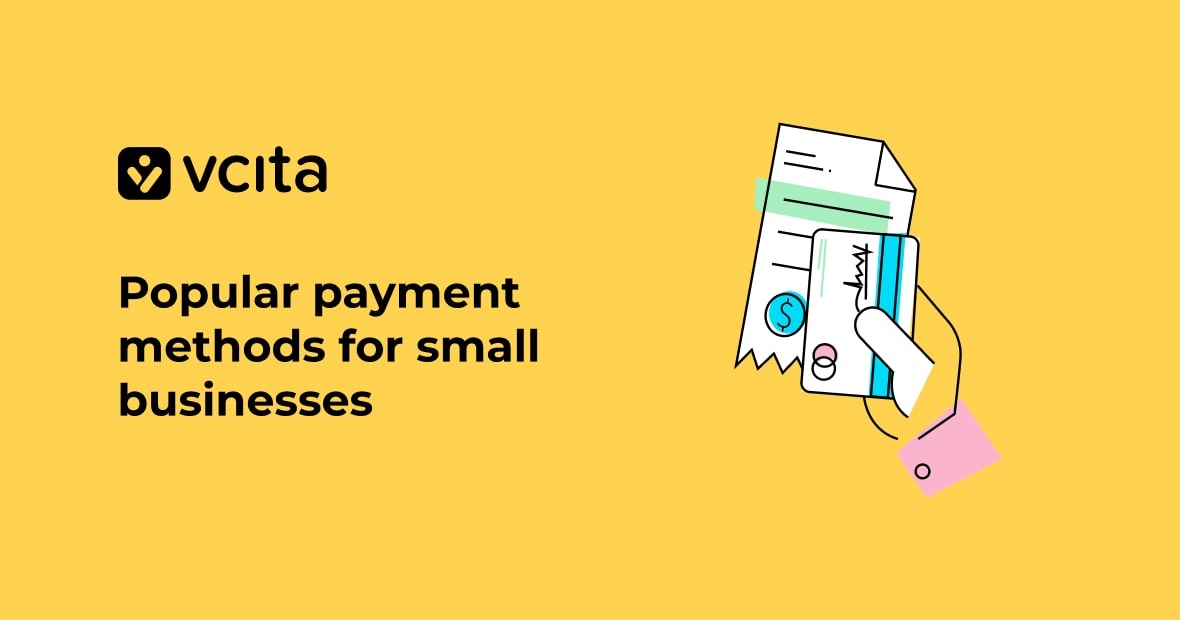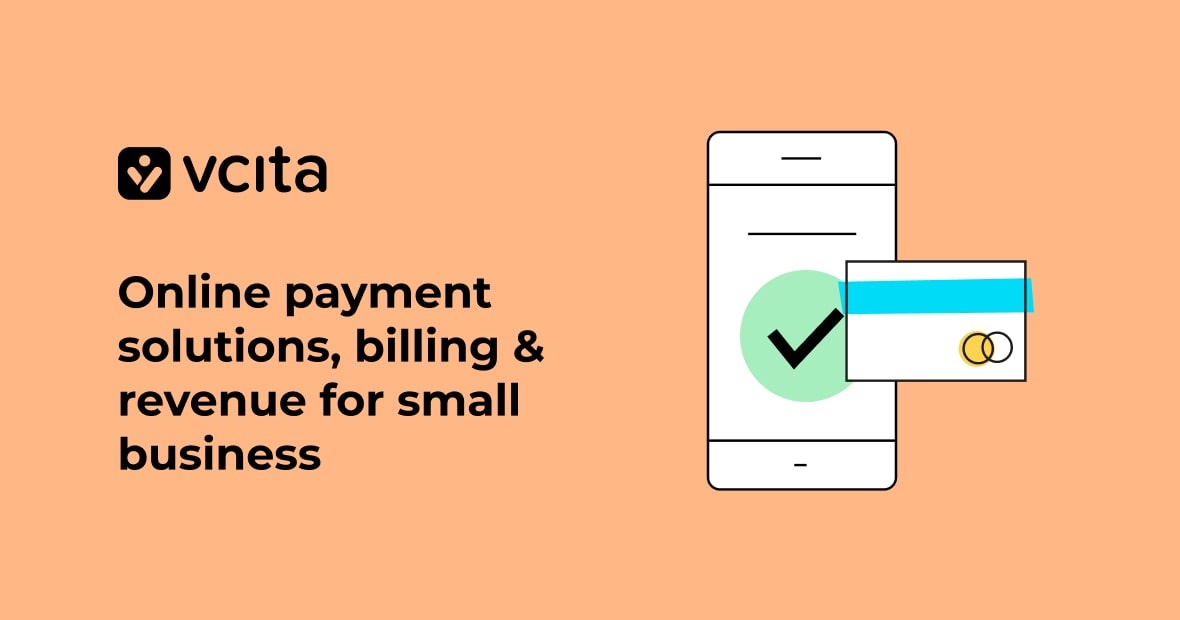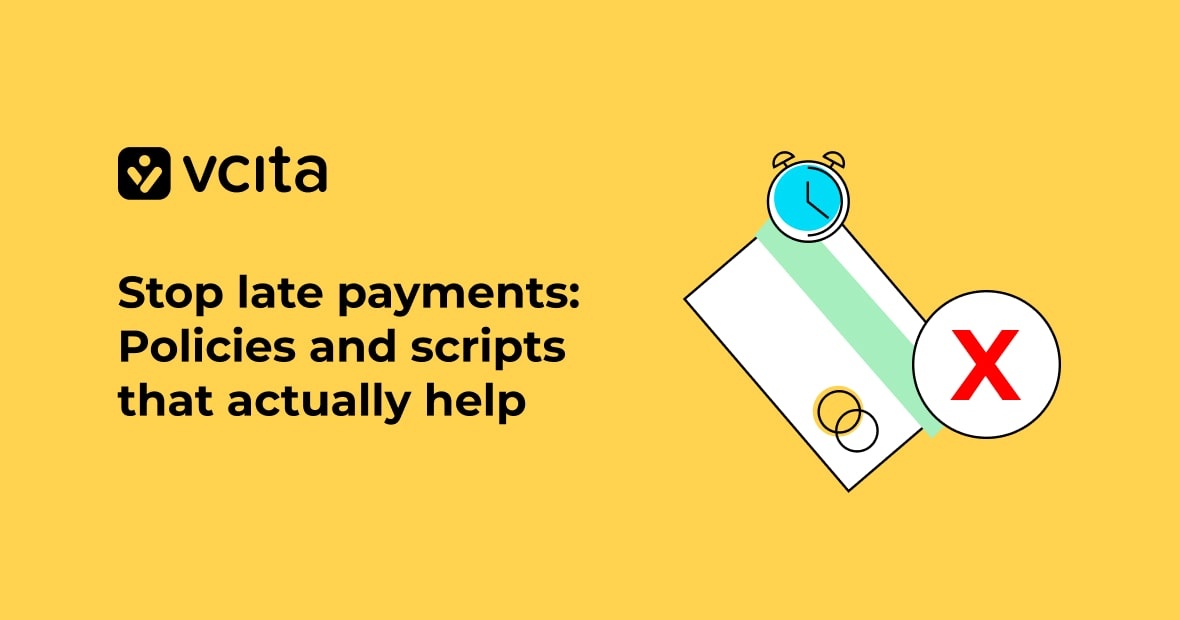You’re a small business owner looking to get paid quickly and without fuss. You want to make it as easy as possible for your customers to pay you, and keep payment fees to a minimum. But which payment methods should you offer, and how can you stop processing fees from mounting up?
The good news is that there are plenty of options. Accepting credit cards used to mean a clunky merchant account and heavy transaction fees, but not anymore. Mobile payments, online payment gateways, and popular third-party processors now offer small business owners like you affordable payment solutions to accept credit cards and manage cash flow.
This overview of payment options helps you make smart decisions about receiving payments and avoiding excessive transaction fees.
Accepting credit and debit cards for your small business
The key benefits
Offering credit and debit card payments is a must for small businesses today. Not only does it provide convenience for customers, but it can also boost your cash flow and increase sales. With mobile payment solutions and online payment gateways, accepting popular payment methods like credit cards has never been easier.
Getting set up
To start accepting credit and debit cards, you’ll need a merchant account from a bank or payment processor. This allows you to receive electronic funds from customer’s bank accounts when they pay with cards. You’ll also need a payment gateway – software that securely transmits card data between you, the customer, and your merchant account provider. Many providers bundle the merchant account and payment gateway together as an all-in-one credit card processing solution.
Choosing the right option
There are various ways to actually accept the card payments in person or online. For in-store purchases, you can use a simple card reader that connects to your mobile device or POS system. For ecommerce or invoicing, an online payment method integrated with your website or software is ideal. Popular options include Stripe, Square, PayPal, and services like vcita that bundle it all together. Just watch out for transaction fees that can eat into your profits.
The payoff
While there are some upfront and ongoing costs, the ability to accept credit and debit card payments is worth it. Customers expect the convenience and flexibility of using their preferred type of payment method. Offering it can help you stand out, increase sales from impulse buys, and maintain a healthy cash flow.
Setting up a merchant account and payment gateway
Open your merchant account
To accept credit and debit card payments, you’ll need a merchant account. Setting one up is pretty straightforward. You’ll apply to a merchant account provider, sharing details about your business. Once approved, you can start accepting popular payment types like Visa, Mastercard, American Express, and Discover.
Choose an online payment gateway
An online payment gateway is the virtual terminal that securely processes credit card payments for your business. It encrypts customer’s bank account info and connects with your merchant account to move funds. Many merchant account providers offer their own integrated payment gateways. Or you can opt for third-party solutions like PayPal, Stripe, or Square. They integrate seamlessly with e-commerce platforms and charge around 2.9% + $0.30 per online transaction. Just be sure any gateway you use is PCI compliant to protect customer data.
Consider mobile payments
Lots of small business owners now accept mobile payments using smartphone card readers and apps. Solutions like Square, PayPal, and Clover allow you to securely accept chip or contactless payments like Apple Pay on the go.
Mind the fees
Of course, all these online payment methods for small businesses come with transaction fees. Merchant account fees can range from a few cents plus a percentage for each sale. Same for mobile payment processors. Factori those credit card processing costs into your pricing to keep cash flow healthy.
Mobile and online payment options for small businesses
Convenient payment solutions
These days, customers expect a seamless payment experience – whether shopping online or in person. As a small business owner, offering mobile and online payment options is crucial. It allows you to meet customer expectations and boost sales.
Accept credit cards on-the-go
A mobile credit card reader turns your smartphone or tablet into a virtual payment terminal. This pocket-sized device lets you accept credit and debit card payments anywhere – at events, markets, or customer locations. Just plug it into your device’s audio jack or connect via Bluetooth.
Popular options like Square, PayPal Here, and Intuit GoPayment make it easy to start accepting plastic on your mobile. The fees are low, with rates around 2.7% per swiped transaction.
Stay flexible with virtual terminals
Virtual terminals allow you to manually key in card details and accept payments over the phone, by mail, or in your office. Popular options include PayPal Virtual Terminal, Dharma, and Square Virtual Terminal. The fees are similar to online gateways.
Unified payment solutions
All-in-one platforms like vcita consolidate mobile payments, online gateways, virtual terminals and more into one easy solution. This provides a centralized way to accept all major payment types – simplifying operations and cash flow tracking.
PCI compliance: what small business owners need to know
PCI compliance is crucial when accepting credit and debit card payments. It helps protect your customers’ sensitive data and builds trust. Failing to comply can lead to hefty fines, lawsuits, and damage to your reputation.
What is PCI compliance?
PCI DSS (Payment Card Industry Data Security Standard) is a set of security standards for businesses that handle, store or transmit credit card data. It ensures that you have robust measures in place to safeguard cardholder information from theft or misuse.
Why it matters
Data breaches and fraud are on the rise. Customers want assurance their card details are safe with you. Being PCI compliant shows you take security seriously and value their privacy. It can give you an edge over competitors.
Key requirements
The key compliance areas for PCI include:
- Using PCI-approved payment gateways and card readers
- Encrypting transmission of cardholder data
- Restricting data access to employees who need it
- Maintaining secure systems and applications
- Regularly monitoring and testing networks
Ensuring PCI compliance
For small merchants, PCI compliance starts with your payment processor or gateway provider. They’ll have a program and self-assessment questionnaires tailored to your needs. Work closely with them to implement best practices specific to your business.
The path to full PCI DSS compliance has some upfront costs. But it’s an investment that pays dividends through increased customer trust and avoiding costly data breaches down the road.
Choosing the right payment processing solutions for your small business needs
Offering the most popular payment methods
As a small business owner, offering convenient payment options is crucial for keeping your customers happy and your cash flow healthy. You want to make sure to offer the payment methods that your customers prefer.
Accepting credit and debit cards is a must these days, as most customers prefer the convenience of plastic over cash. You’ll need a merchant account and payment gateway to process these transactions. Mobile payments like Apple Pay and Google Pay are also becoming increasingly popular, especially among younger customers.
Finding the right fit
Now that you know the options, it’s time to figure out which ones make sense for your business. Consider factors like the type of goods or services you offer, your average transaction amount, and how often you get paid.
For example, if you’re a mobile service provider like a plumber or landscaper, a card reader that accepts contactless payments on-the-go could be a game-changer. But if you run an online store, an e-commerce platform with a built-in payment gateway might be a better choice.
Keeping it secure and affordable
Of course, security and affordability are also key concerns. Look for PCI-compliant solutions that protect your customers’ data and don’t nickel-and-dime you with hidden fees. Many providers charge a flat monthly rate plus reasonable transaction fees, which can help you budget better.
Tools like vcita’s all-in-one business management software can streamline your payment process while meeting security standards. With options for online payments, invoicing, and accepting credit cards, it’s a versatile solution worth considering.
The right payment methods can boost sales
No matter which route you choose, offering mobile and online payments gives customers convenient options to pay how they prefer. Take the time to understand your business needs and shop around for payment processing solutions that are secure, user-friendly, and cost-effective. The right choice can help you get paid faster while providing a top-notch experience for your customers.




























